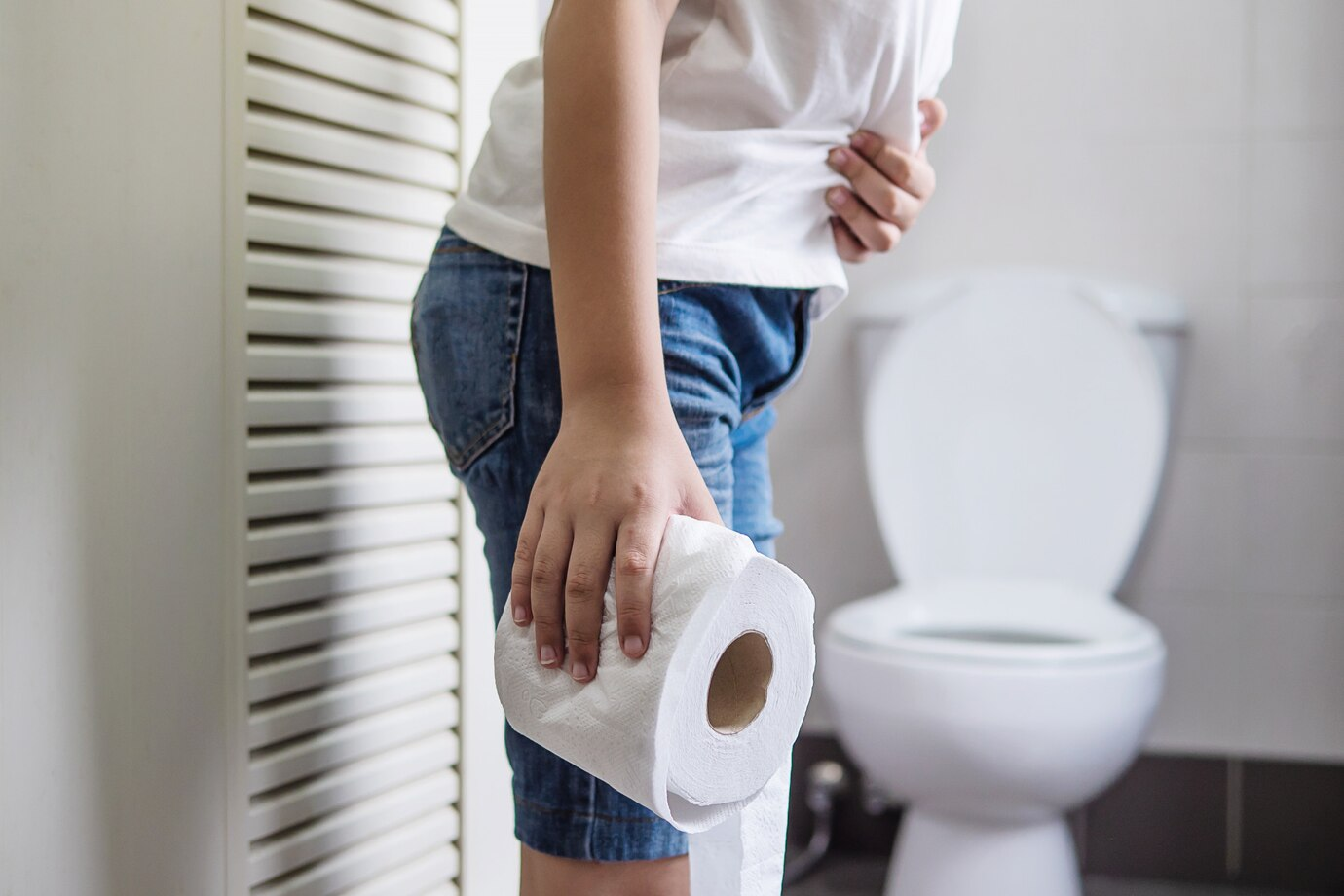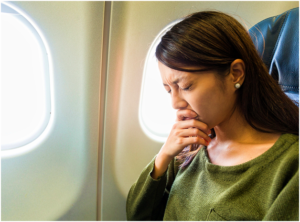Italy Travellers’ Diarrhea Guide

When traveling to Italy, tourists may face health issues, such as traveler’s diarrhea, due to changes in food, water, and hygiene habits. Although Italy generally has safe sanitation standards, some factors can still lead to an upset stomach for those not accustomed to local conditions. Knowing the common causes and ways to prevent traveler’s diarrhea in Italy can help visitors enjoy their trip with fewer worries.

Common Causes of Traveler’s Diarrhea in Italy
Traveler’s diarrhea in Italy may come from food, water, or hygiene-related sources. While Italy is well-regarded for cleanliness and food safety, certain practices can still cause stomach troubles, especially for those not used to the regional ingredients or preparation methods. Here are some causes to consider:
Food-Related Causes
Eating unfamiliar foods is a key reason many travelers experience stomach upset. Traditional Italian cuisine often includes rich ingredients, herbs, and spices that can be hard to digest for some. Street food or food from markets, while popular, may sometimes be prepared in conditions different from what travelers are used to. Also, some regional dishes include raw or undercooked ingredients, such as seafood, which can lead to issues for those with sensitive digestive systems.
Dairy Sensitivity
Italy is known for its variety of cheeses, and dairy is a staple in many traditional dishes. Travelers with lactose intolerance or dairy sensitivities may experience discomfort if they consume cheeses, milk, or creamy sauces. Symptoms such as bloating, gas, or diarrhea may occur. Lactose-free options are available in some stores, but they may not be as common in restaurants.
Water-Related Causes
Tap water in Italy is generally safe, but its mineral content can be different from what some travelers are used to. For people with sensitive stomachs, it’s best to stick to bottled water or to use a portable filter. Additionally, avoid ice in drinks, especially in small cafes or street vendors where the source may be unclear. Even a small change in water quality can upset a traveler’s stomach.
Unwashed Fruits and Vegetables
In Italy, fresh produce is common, but consuming unwashed or improperly washed fruits and vegetables can expose travelers to bacteria. Fruits like apples or grapes may carry residues if not rinsed thoroughly. When buying fresh produce, choosing items you can peel, like bananas or oranges, or washing them carefully is best. If you’re unsure about the washing standards, avoid raw vegetables in salads from smaller vendors and stick to cooked options instead.
Hygiene-Related Causes
Proper hand hygiene is essential when eating out, especially in busy tourist areas. Some public restrooms may not always provide soap or hand sanitizers, making it important to carry your own. Bacteria spread more easily in crowded places, so washing hands thoroughly before eating can help prevent sickness.
For tourists facing health issues from different types of traveler’s diarrhea while in Italy, ReadyHelp offers online or in-person consultations with an English-speaking doctor in Rome. Our general practitioner can provide basic medical advice and services, which are ideal for tourists without local insurance or Italian language skills.
Recognizing Symptoms of Traveler’s Diarrhea
Traveler’s diarrhea is a common health issue for those visiting new places, including Italy. It usually occurs after consuming contaminated food or water. Symptoms of traveler’s diarrhea can vary in severity, but recognizing them early can help travelers take the right steps to manage their condition. Understanding these symptoms can help you respond effectively and seek medical attention if needed.
Frequent, Loose Stools
One of the most common signs of traveler’s diarrhea is frequent, loose stools. Travelers may need to go to the bathroom more often than usual. The stools may be watery, and this can happen several times a day. While it is normal for some people to experience changes in bowel habits when traveling, having loose stools more than three times a day often indicates a problem. Keeping track of how often you need to use the restroom can help you identify if you are experiencing traveler’s diarrhea.
Abdominal Cramps
Another common symptom is abdominal cramps. These cramps can range from mild to severe and may happen before or during a bowel movement. The discomfort can make engaging in activities you might want to enjoy while traveling difficult. Cramps may also be accompanied by urgency, leading you to rush to find a bathroom. It is important to note that while abdominal pain can be common, severe pain should not be ignored and may require medical attention.
Nausea and Vomiting
Nausea and vomiting can also occur with traveler’s diarrhea. Some travelers may feel sick to their stomachs and might even throw up. This can lead to dehydration, especially if you are not able to keep food or liquids down. If nausea and vomiting accompany other symptoms, it is essential to rest and stay hydrated. Sipping clear liquids like water or broth can help replace lost fluids.
Fever
A mild fever may also occur as your body responds to an infection. Travelers might notice a slight increase in body temperature. If the fever is low-grade, it may not require immediate medical attention, but if it becomes high or lasts for several days, it is a good idea to consult a healthcare professional. Monitoring your temperature can help you understand how your body is reacting to the situation.
Bloating and Gas
Bloating and gas are additional symptoms that may accompany traveler’s diarrhea. You might feel a sense of fullness in your abdomen or experience flatulence. These symptoms can be uncomfortable and may add to the overall distress caused by the traveler’s diarrhea. Changes in your diet, such as eating unfamiliar foods or consuming more fiber than usual, can contribute to bloating and gas.
Recognizing the symptoms of traveler’s diarrhea is important for anyone visiting Italy or other foreign destinations. If you find yourself experiencing these symptoms during your travels, it is wise to consult a healthcare provider. ReadyHelp offers consultations with an English-speaking Italian doctor who can help with general health treatments, including travel-related illnesses. Remember that taking care of your health while traveling is essential for a safe and enjoyable trip.

Potential Complications of Traveler’s Diarrhea
When travelers experience diarrhea, it is important to solve the issue early to avoid complications. Traveler’s diarrhea may seem like a common problem, but it can lead to more serious health issues if left untreated. Recognizing the symptoms and seeking help quickly can make a big difference in your recovery and overall health. Let’s find out some potential complications that can arise from traveler’s diarrhea, including dehydration, malnutrition, and gastrointestinal infections.
Dehydration
One of the most significant complications of tourists’ diarrhea is dehydration. When you have diarrhea, your body loses a lot of fluids and electrolytes. This loss can happen quickly, especially if you have frequent, loose stools. Symptoms of dehydration include extreme thirst, dry mouth, dizziness, and dark-colored urine. In severe cases, dehydration can lead to serious health problems, such as kidney failure or shock.
Travelers, especially young children, and older adults, are at higher risk for dehydration. It is important to drink plenty of fluids when experiencing diarrhea. Water, clear broth, and oral rehydration solutions are good choices. Avoid drinks with caffeine or alcohol, as they can worsen dehydration. If you notice signs of dehydration, seek medical help immediately. Quick diarrhea treatment options can help prevent further health complications.
Postinfectious Conditions
Another potential complication of traveler’s diarrhea is the development of postinfectious conditions, such as Irritable Bowel Syndrome (IBS). After an infection, some people may experience ongoing digestive issues lasting for weeks or even months. Symptoms of IBS can include abdominal pain, bloating, changes in bowel habits, and discomfort after eating. These issues may disrupt daily life and travel plans.
Other postinfectious conditions may also arise. Some individuals might develop lactose intolerance, finding it hard to digest dairy products after an infection. Others may experience chronic gastrointestinal problems, leading to long-term health issues. While most people recover fully from traveler’s diarrhea, understanding these possible complications can help travelers recognize when to seek further medical attention.
Malnutrition
Malnutrition is another potential complication of traveler’s diarrhea. When experiencing diarrhea, the body may not absorb nutrients from food properly. This can lead to deficiencies in essential vitamins and minerals, which are necessary for good health. Over time, lack of proper nutrition can weaken the immune system, making it harder for the body to fight off infections. This is particularly concerning for individuals with dietary restrictions or preexisting health conditions. Focusing on a balanced diet and replenishing lost nutrients after recovering from diarrhea is important.
Infections
Sometimes, travelers may develop secondary infections due to diarrhea. This can happen when harmful bacteria or viruses enter the bloodstream or affect other body parts. For example, some individuals may develop a urinary tract infection (UTI) or a gastrointestinal infection that is separate from the original diarrhea. Symptoms of these gastrointestinal infections can include fever, persistent abdominal pain, and unusual fatigue. If these symptoms occur, it is important to seek medical attention, as they may help treat traveler’s diarrhea.

Best Over-the-Counter Medicines for Traveler’s Diarrhea in Italy
When traveling, it’s important to be prepared for potential health issues, including traveler’s diarrhea in Italy. Fortunately, many effective over-the-counter medicines are available to help manage symptoms. Here is a list of commonly used medications tourists can buy in Italy.
Antidiarrheals:
- Loperamide (Imodium): A well-known antidiarrheal medication is available in most pharmacies. It works by slowing down the intestinal muscles, which helps reduce the frequency of bowel movements.
- Racecadotril: This medication is frequently prescribed in Italy for traveler’s diarrhea. It functions by decreasing intestinal secretions, which can help reduce symptoms.
Oral Rehydration Solutions (ORS):
- Pedialyte: This is a widely recognized brand of oral rehydration solution available in many countries, including Italy. It contains essential electrolytes that help replenish fluids lost through diarrhea.
- Ferrero’s Osmolact: This is a popular Italian brand of ORS commonly used to restore hydration and electrolytes in individuals suffering from diarrhea.
Probiotics:
- Enterogermina: This is a popular probiotic brand in Italy that contains spores of Bacillus subtilis. It can help restore the balance of beneficial bacteria in the gut, which is often disrupted during episodes of diarrhea.
- Floratil: Another well-regarded Italian brand of probiotics, Floratil is often recommended for travelers dealing with diarrhea. It can support gut health and aid recovery.
If you experience traveler’s diarrhea while in Italy, these over-the-counter medicines can help manage your symptoms effectively. However, it is always a good idea to consult with a healthcare professional, especially if symptoms persist or worsen. Whether you prefer online or in-person consultations, ReadyHelp guarantees you have access to medical support during your travels. Taking care of your health is essential for enjoying your trip to Italy.
What to Include in Your Travel Diarrhea Kit
When traveling, it’s important to be prepared for any health issues that may arise, including traveler’s diarrhea. Packing a travel diarrhea kit can help you manage symptoms effectively and stay healthy during your trip. Here’s what to include in your kit, focusing on items to bring from home and what you can find locally in Italy.
From Home:
- Loperamide (Imodium): This reliable antidiarrheal medication can help control symptoms and provide quick relief. It’s a good idea to have it on hand before you travel.
- Oral Rehydration Solutions (ORS): Bring pre-made ORS packets or the necessary ingredients (sugar and salt) to make your own. Staying hydrated is crucial during diarrhea.
- Probiotics: Consider packing probiotics to help restore the balance of beneficial bacteria in your gut. These can support your digestive health during your travels.
- Antibacterial Hand Sanitizer: This is essential for maintaining good hygiene, especially when you are eating or using public facilities.
- First-Aid Kit: Include basic supplies like bandages, pain relievers, and a thermometer. This can be useful for minor injuries or ailments.
Locally Available:
- Over-the-Counter Medications: Italian pharmacies offer a wide range of antidiarrheal medications for travelers, including racecadotril and other antidiarrheals. You can find these easily when needed.
- Oral Rehydration Solutions: Pre-made ORS packets, such as Pedialyte or Ferrero’s Osmolact, are readily available in pharmacies and supermarkets across Italy.
- Probiotics: Popular Italian brands like Enterogermina and Floratil can be found in most pharmacies, making it easy to replenish gut health during your trip.
Having a well-prepared travel diarrhea kit can help you respond quickly to any symptoms you may experience while traveling. By packing essential items from home and knowing what is available locally in Italy, you can stay comfortable and healthy. If you do experience prolonged symptoms, consider consulting with a healthcare professional. ReadyHelp offers consultations with an English-speaking Italian doctor, providing you with the support you need, whether online or in person.

When Should You See a Doctor in Italy?
If you experience symptoms of traveler’s diarrhea while in Italy, it is important to know when to seek medical help. You should see a doctor if you have severe diarrhea that lasts more than two days or if you notice blood in your stools. High fever, dehydration symptoms like dizziness, dry mouth, or decreased urine output are signs that you must consult a healthcare professional.
Finding medical services in Italy is straightforward. Most cities have pharmacies where you can get advice and some antidiarrheal medications. For more serious issues, you can visit a local clinic or hospital. If you are unsure where to go or how to communicate your needs, ReadyHelp offers consultations with an English-speaking Italian doctor. This service is beneficial for tourists who may not speak Italian or who do not have local health insurance.
You can consult with the doctor online or in person, making getting the help you need convenient. Whether you have mild symptoms or require more urgent care, ReadyHelp can guide you through your health concerns in Italy. It is always better to seek help sooner rather than later, ensuring your trip remains enjoyable and healthy.
Recommended Articles
Looking for other information about healthy living in your area? Our blog has information about healthful habits, nutritious foods and hospitals or late-night pharmacies near you!
-
Who Needs a Tetanus Vaccine and When?Read More
If you’re traveling in Italy and find yourself in need of a tetanus shot, knowing where to go and what to expect is essential. Whether you’re dealing with a cut, looking for a booster, or simply staying up to date with your vaccinations, this guide answers all your questions about tetanus vaccination clinics in Rome, […]
-
Top Triggers for Perioral Dermatitis and Effective Treatment OptionsRead More
Perioral dermatitis is a frustrating skin condition that often appears as a rash around the mouth, nose, or eyes. If you’re traveling in Italy and struggling with this condition, understanding its triggers and treatment options can help you manage it effectively. This article discusses what triggers perioral dermatitis, what to avoid, and how to treat […]
-
 Can You Fly With Pneumonia? A Comprehensive Guide for TravelersRead More
Can You Fly With Pneumonia? A Comprehensive Guide for TravelersRead MoreTraveling can be challenging, especially when dealing with health concerns like pneumonia. If you’re planning a trip to Italy or need medical assistance while exploring the country, it’s crucial to understand the risks and precautions associated with flying with pneumonia. This article addresses common questions about pneumonia and air travel, outlines potential risks, and provides […]
-
 Flying After Surgery: What You Need to Know About Air Travel and RecoveryRead More
Flying After Surgery: What You Need to Know About Air Travel and RecoveryRead MoreFlying after surgery can be daunting, but with the right knowledge and precautions, it’s possible to travel safely. Whether you’re recovering from knee surgery, a hip replacement, or a major medical procedure, it’s essential to understand how air travel can affect your recovery and what steps you can take to minimize risks. This guide covers […]
-
 Can you fly with vertigo: What You Can Do About It?Read More
Can you fly with vertigo: What You Can Do About It?Read MoreTraveling with vertigo can be a daunting experience. Whether it’s a short business trip or a long-awaited vacation, the idea of flying with dizziness or balance issues can cause anxiety for many. So, can you fly with vertigo? The answer is yes, but it requires some preparation and care. Vertigo can affect people in various […]
-
 Navigating Pregnancy in Italy: What Expecting Mothers Need to KnowRead More
Navigating Pregnancy in Italy: What Expecting Mothers Need to KnowRead MorePregnancy is a life-changing journey, and for expecting mothers in Italy, understanding how the healthcare system works, cultural practices, and available resources is essential. Whether you are a local resident or an expat, knowing what to expect when navigating pregnancy in Italy can make this experience less stressful and more enjoyable. This article will cover […]






